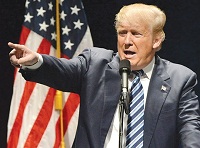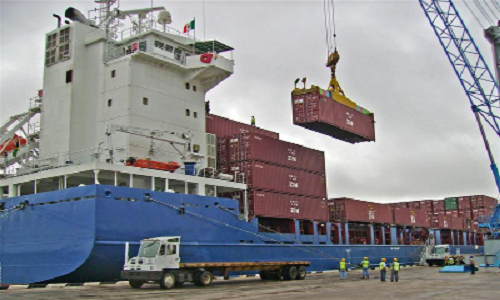"Obama administration last year had imposed retaliatory tariff on textiles against the trade war over Europe. These were viscose rayon staple fibres as well as Modal fibres, not carded, combed or processed for spinning, and single yarns containing 85 per cent or more by weight of artificial staple fibres coming from Europe. The proposed 100 per cent retaliatory tariffs have left US textile makers worried that new measures could increase their raw material costs and push up the price of fabrics made from rayon and Modal. Lyocell fibre, also known as Tencel, is not included under the proposed tariffs."

Obama administration last year had imposed retaliatory tariff on textiles against the trade war over Europe. These were viscose rayon staple fibres as well as Modal fibres, not carded, combed or processed for spinning, and single yarns containing 85 per cent or more by weight of artificial staple fibres coming from Europe. The proposed 100 per cent retaliatory tariffs have left US textile makers worried that new measures could increase their raw material costs and push up the price of fabrics made from rayon and Modal. Lyocell fibre, also known as Tencel, is not included under the proposed tariffs.

The tariffs have plenty of people worried because 41 per cent of the viscose rayon fibre imported into the US in 2015 came from Europe, translating into $72 million of fibre. Currently, the tariff on viscose rayon staple fibre is 4.3 per cent and for yarn it is 9 per cent. As Auggie Tantillo, President & Chief Executive, National Council of Textile Organizations (NCTO), which wrote a letter to the US Trade Representative opposing the tariffs explains, the imposition of an additional 100 per cent tariff would be highly disruptive to the supply chain and harm US competitiveness of rayon fiber-containing products.
Production of rayon fibre is nonexistent in the US because it is environmentally difficult to produce. It is still made in Europe and in Asia—mainly China. The US is totally dependent on off-shore sources for rayon fibre, and therefore, any penalty tariff on the product could lead to adverse ramifications for US manufacturers.
Impact on US companies
At least 10 US companies belonging to his textile group import viscose rayon staple fibre from the EU. They say additional tariffs would place an undue burden on their businesses and potentially lead to lost sales and hurt employment. One company that would be affected by the tariff is Lenzing Fibers in Mobile, Ala. The company already produces Tencel fibres, the brand name for Lyocell, at its Alabama factory. But it has plans to invest $293 million in a new fibre plant capable of producing 90,000 ton of Tencel fibre a year. The company was planning to import viscose rayon staple fibres from its plant in Austria to blend with Lyocell staple fibers made in the US to make nonwoven products such as baby wipes. The increase in duties on viscose would have a negative effect on business for this new investment, points out John Patterson, CFO, Lenzing Fibres.
Advantage China
China is a major producer of viscose rayon staple fibre. In 2015, about 50 per cent of the viscose rayon staple fibre imported into the US came from China. “Should penalty tariffs be levied on imports from the EU, the clear winner would be China,” the NCTO pointed out in its letter to the US Trade Representative. Another company that would be impacted is Buhler Quality Yarns, a Swiss company headquartered in Georgia, US. In its US factory, it manufactures yarns from Supima extra-long staple cotton, MicroModal Edelweiss and MicroTencel. They says they have to look at other fibers to sustain if this goes forward. The biggest fibre they buy is Supima, and second-largest fiber consumption is in Modal. And they need to provide yarns at a garment price point that people are looking.
In fact, the trade dispute started in 1998 when the EU lost a case at the WTO for banning American beef. In 2009, the US negotiated an agreement to allow a small degree of market access for specially produced beef that meets the EU’s standards, but that agreement did not work as intended, said the office of the US Trade Representative, which resulted in this retaliatory proposal. If the proposed tariffs go into effect, the price of Tencel yarns would become more attractive because its fibre content wouldn’t be subject to added tariffs.












